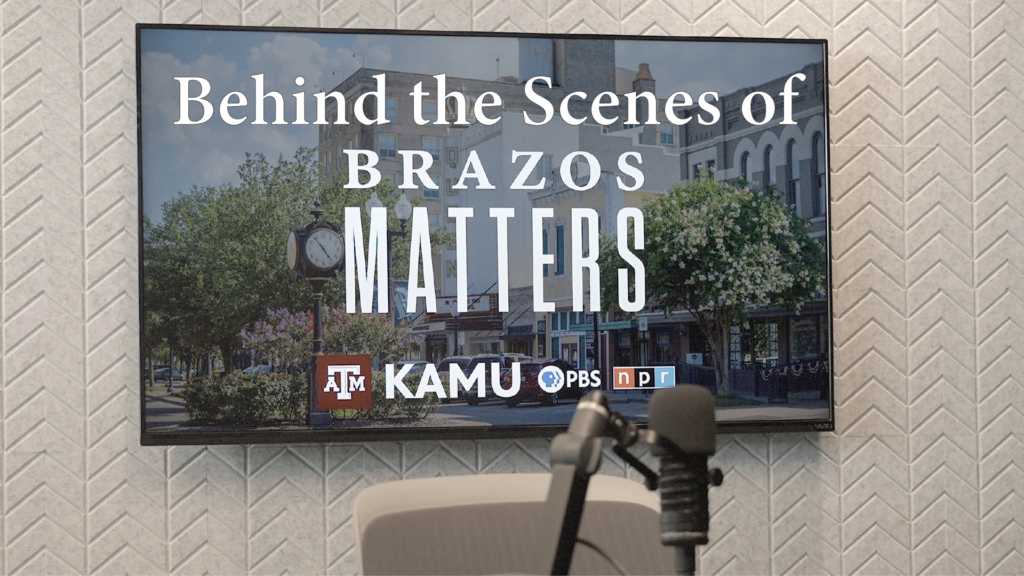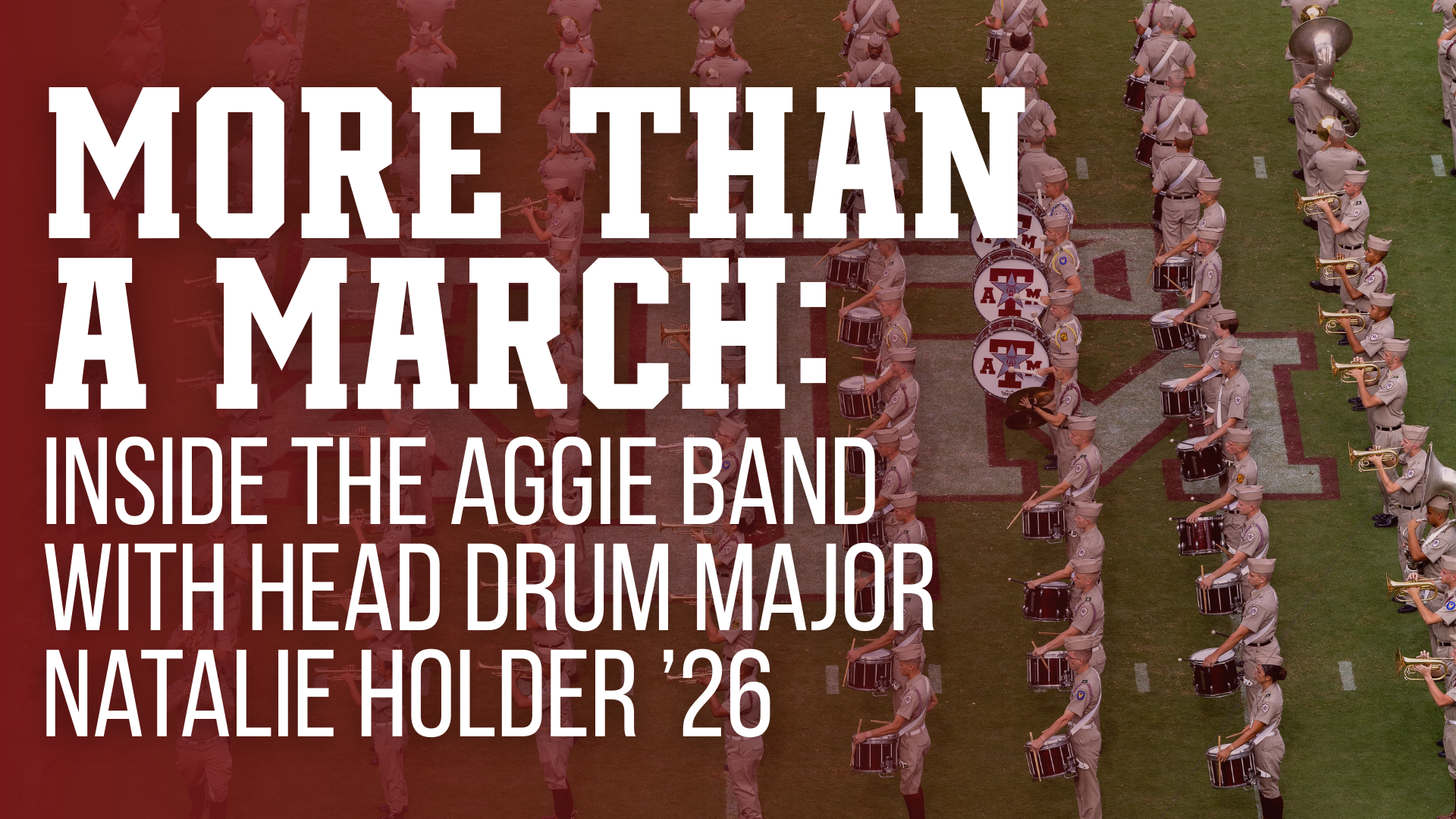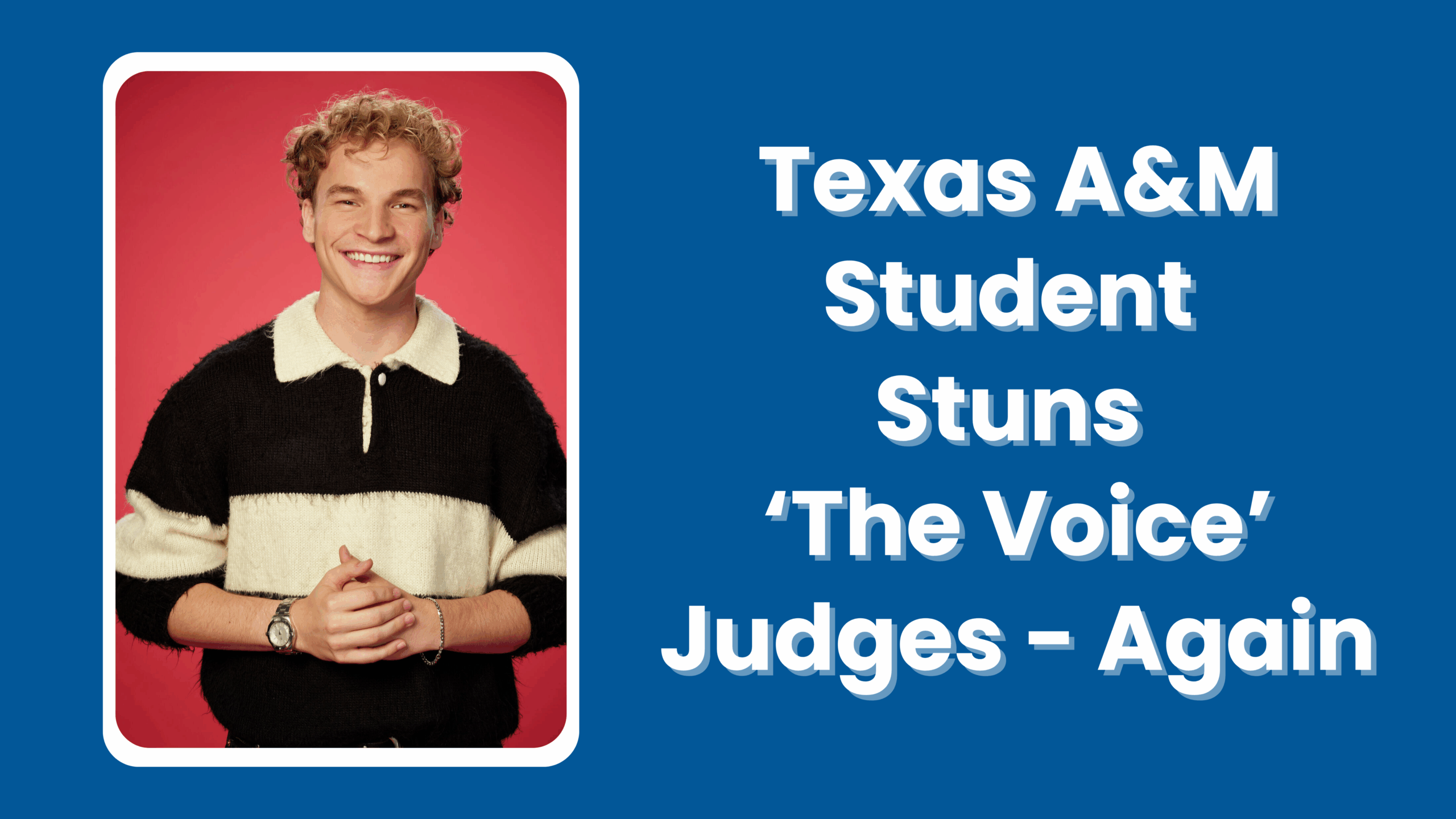KAMU works to consistently bring our viewers and listeners interesting and educational content. When you tune your radio to 90.9 KAMU-FM, you can count on us to keep you informed on current events from all over the globe. But are you curious to hear about who’s making an impact in your own backyard? Then look no further than “Brazos Matters.”
“Brazos Matters” is an original KAMU-FM program that gives you a deeper look into the individuals who work hard to make Aggieland a safe and enjoyable place to live. Host Jay Socol welcomes guests from throughout the Brazos Valley who are dedicated to their work and to serving you.
You can listen to “Brazos Matters” any time on our website or your favorite podcast platform – Spotify, Apple Podcasts, iHeart Podcasts, the NPR app or YouTube. And be sure to subscribe so you never miss an episode!
We caught up with Jay to learn more about the show, his passion for making it and its importance to the community.
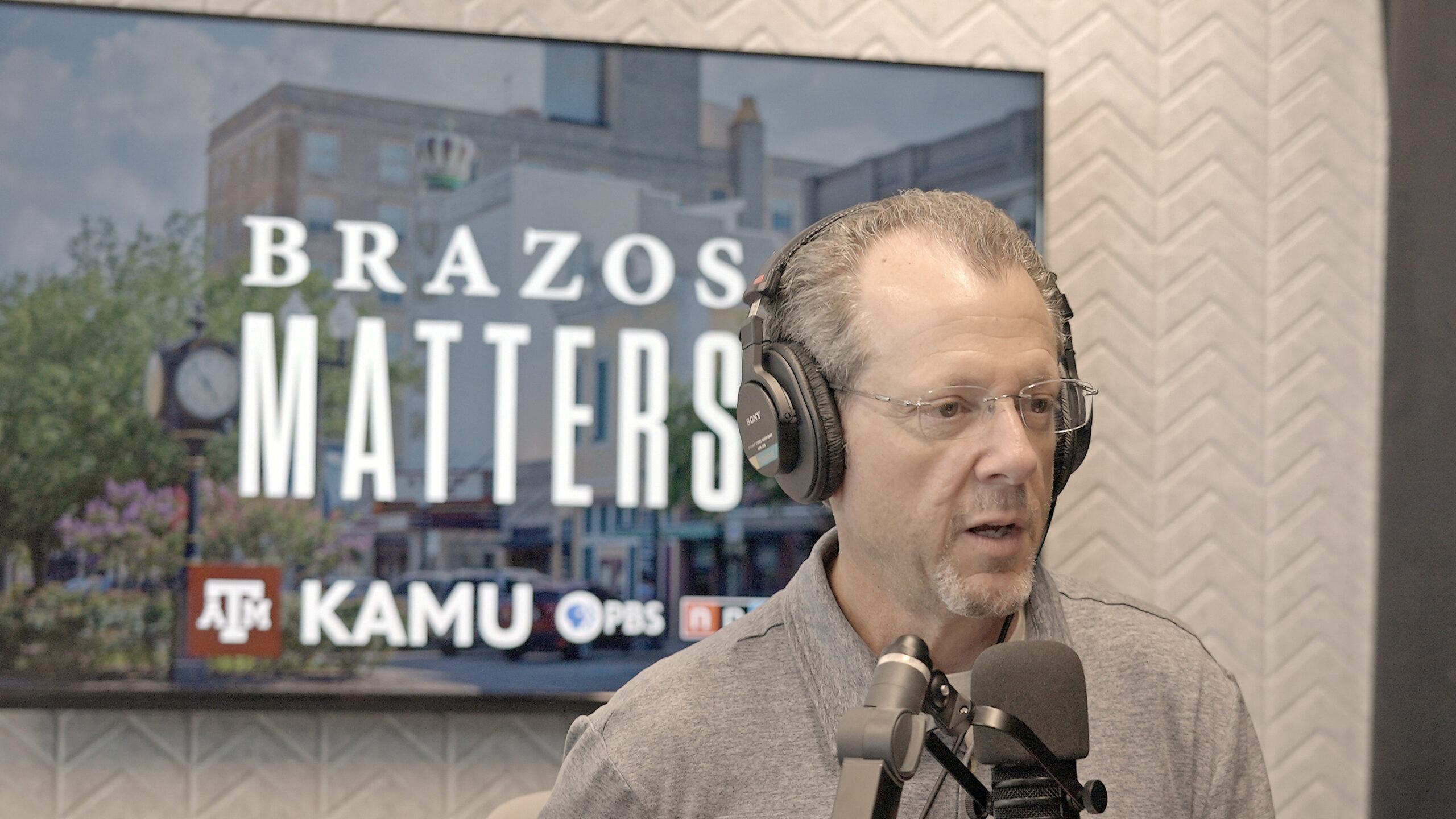
What was your inspiration for starting Brazos Matters?
Like all broadcast stations, KAMU needs to operate in the community’s interest. “Brazos Matters” is a way for us to do more of that, especially on FM, and it could eventually be expanded to the TV side of our operations. It allows us to visit with people from campus or the community to talk about issues that matter to the people who live and work in the Brazos Valley.
Why should people listen?
Too often we hear from local sources and experts in soundbites or brief quotes. On “Brazos Matters,” we get to have a 28-minute discussion with guests, which provides a pretty rare opportunity to really explore their work and why it matters. I don’t think that opportunity is available elsewhere in this community.
What are some important topics that you have covered on the show/impactful people you have met with?
One of my favorite conversations was with a representative of Texas A&M’s Counseling and Psychological Services (now known as University Health Services). That was particularly interesting to me because I have a college-aged son and am always concerned about his mental and physical well-being. Hearing what it’s like to work with students at the scale of a large university like this was fascinating to me. I learned about not only students’ most common struggles but also all of the resources that are available to them 24 hours a day.
I also learned a ton from representatives of local high schools who offer career technology education. I had no idea the depth and breadth of the professions and industries that are represented in those environments or the kinds of partnerships that exist with local businesses. It’s so extensive and so impressive, and it makes me hopeful about the generations that are coming up in terms of learning trades.
What is your preparation process?
I start by preparing questions, whether they’re my own or it’s a combination of mine and the ones the source would prefer that we get into. I will then write out a rough script. I generally script the show opening then have some questions in front of me, but I understand the conversation may organically go in another direction. So sometimes the questions that I have in front of me… I don’t even get to those.
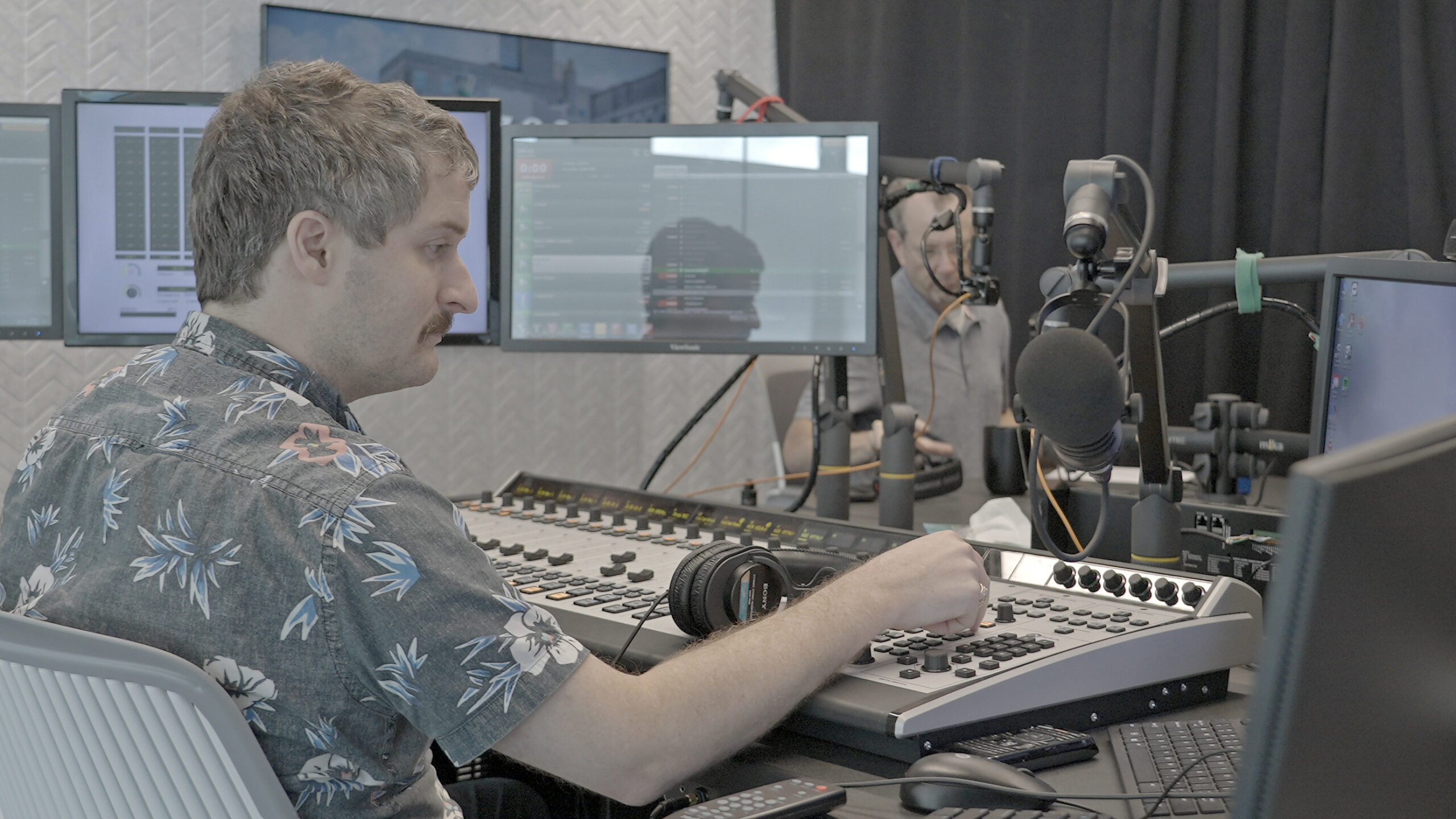
What is it like on the day of the show?
I will escort each guest into the audio studio, get them seated, make sure the microphone is in the right place, and show them how headphones work. We both put on the headphones and will start talking casually. Program Director Matt Dittman runs the show, so he makes sure that audio levels are exactly where they need to be. He has the countdown clock set where we can see it. Then we give a small set of instructions, but I also tell them if you say something that you really want to redo, we can always do that. It is a very disarming environment and not a “gotcha” interview. And if the person happens to have a good sense of humor, we’re going to have some fun along the way. A great example of that was with former KBTX Meteorologist Shel Winkley. That conversation was really fun.
What makes the best interview?
The best interviews are the ones where I don’t look down at the paper very often. They’re just natural conversations and the time flies. Every once in a while, there is an interview that’s a little more difficult to stretch into that 28 minutes, but most of the time these conversations are pretty easy.
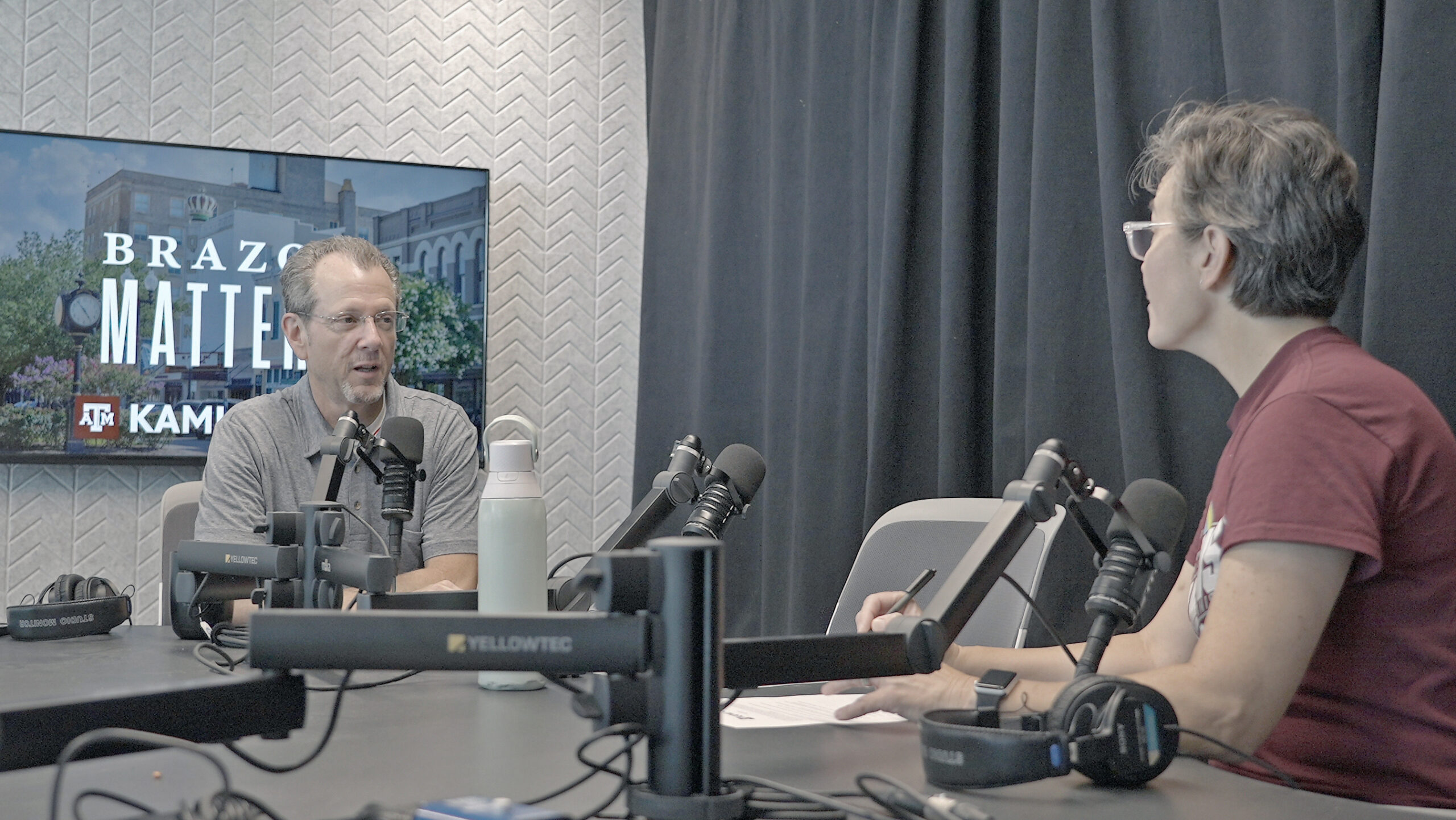
That’s a wrap! What now?
Matt uploads the show recording into Adobe Audition. He trims the beginning and end and puts a little theme music under the beginning. He may adjust the levels a bit to make sure everything sounds as good as it can. If needed, he may edit out a door slam or some other extraneous sound. I always stay in the studio to chat with the guest once we’re done recording. By the time I say goodbye to the guest and walk back to my desk, Matt already has the show edited and posted to the website and podcast platforms.
What makes you passionate about the show?
I like learning new things. My first profession was as a journalist, and I learned new things every day through the stories I would cover and the sources I would talk to. My next profession was in government communications, where I would have to talk to people in my own city about all kinds of different things I didn’t know about. “Brazos Matters” gives me a chance to continue doing the very same thing.
Anything else to add, Jay?
I hope over time we are able to do more interviews more frequently. Right now, we have a small staff that is stretched pretty thin, but in time I hope to incorporate student hosts who can bring in their own guests and add to the frequency of episodes we can offer.
Have someone in mind for Jay to interview? Email him!
If anybody has a suggestion for a topic or guest, I’m happy to take those suggestions. They can email me at jaysocol@tamu.edu.

